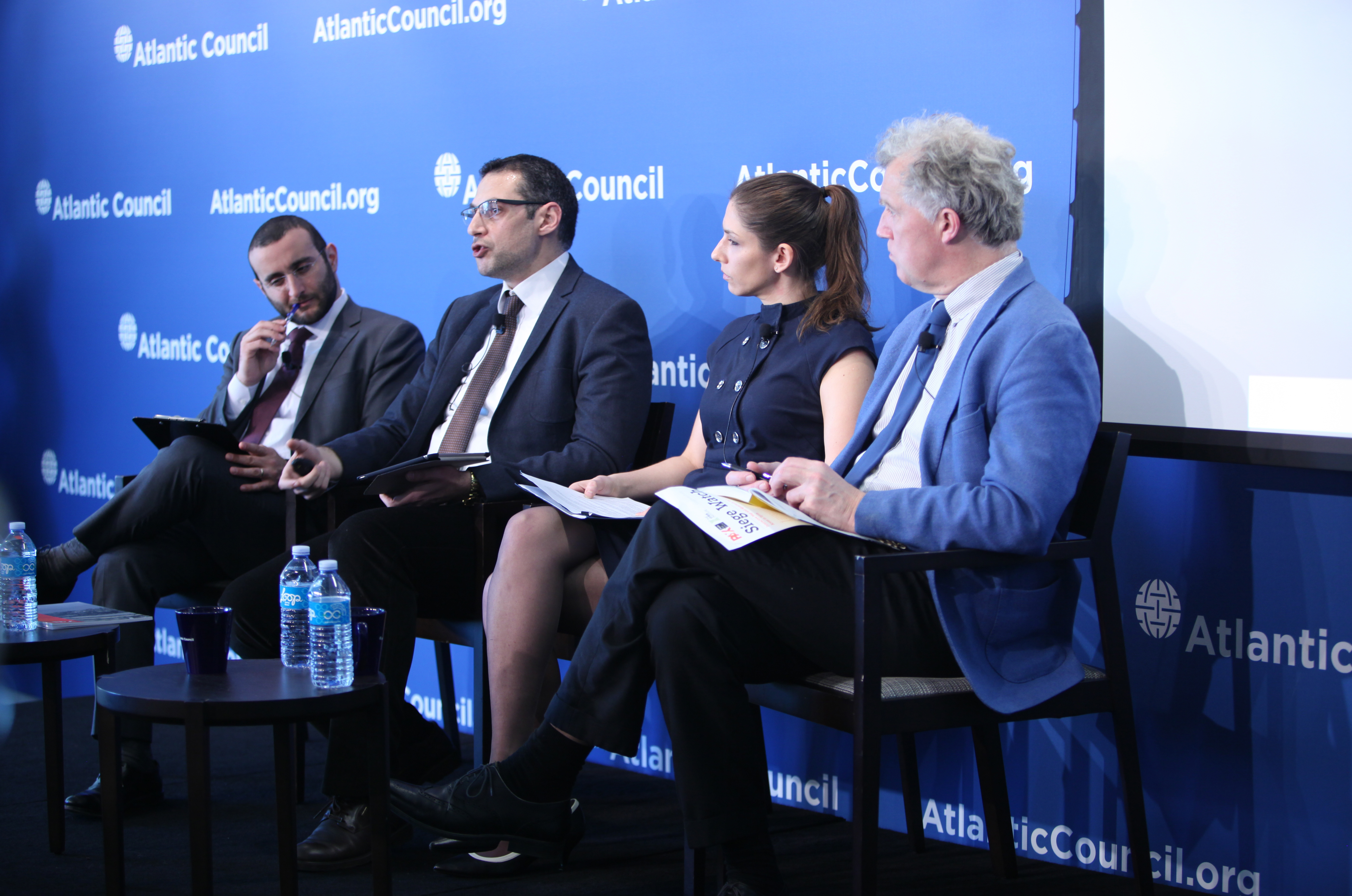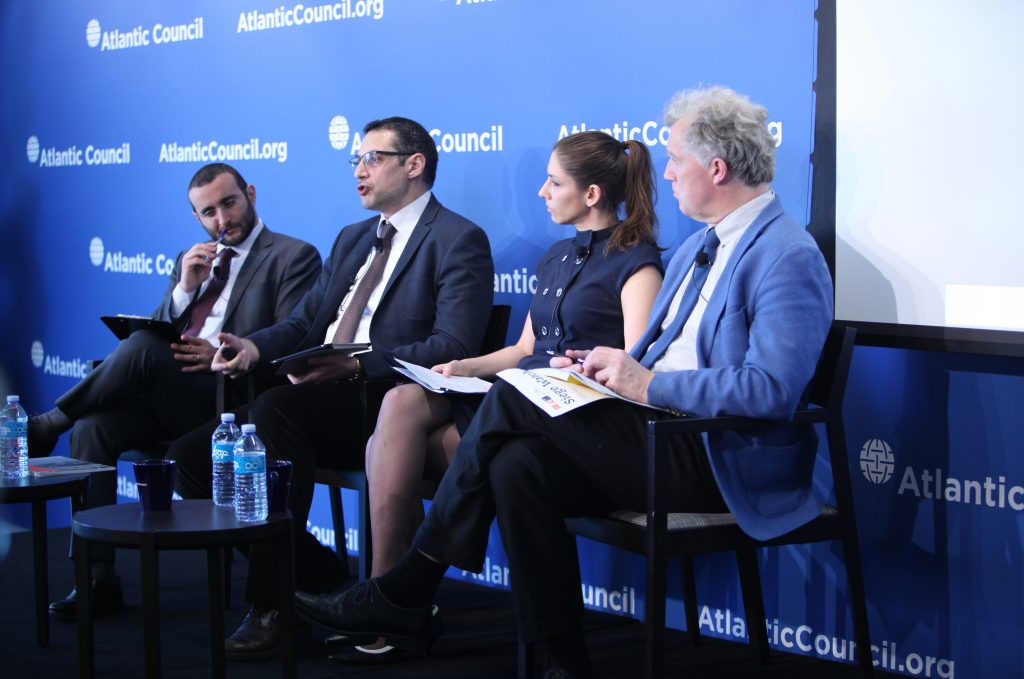 More than a million civilians are currently suffering under siege from both pro-government and rebel-allied forces across Syria, according to a new report from PAX and the Syria Institute.
More than a million civilians are currently suffering under siege from both pro-government and rebel-allied forces across Syria, according to a new report from PAX and the Syria Institute.
Last month, the international community was shocked to learn about Madaya—a besieged Syrian town where up to 300,000 civilians have been essentially cut off from the world. And on February 11, the United Nations reported that up to 120,000 civilians remain stranded in Homs, a city in western Syria, amid offensives. In December 2015, the United Nations released a full report detailing the horrific conditions besieged civilians have been forced to endure in Syria. Valerie Szybala, Executive Director and Cofounder of the Syria Institute, contends that this report falls short of the true extent of the problem.
“The siege situation is much worse and much bigger than what the United Nations reports…It is sad to be talking about the same problem over and over again. It has only been getting worse,” said Szybala.
Szybala spoke at the Atlantic Council on February 10 on a panel convened by the Council’s Rafik Hariri Center for the Middle East. She was joined by Dr. Mohamad Katoub, Public Relations Director for the United Medical Office of Eastern Ghouta in Syria, and Jan Jaap van Oosterzee, Middle East Advocacy Leader for PAX, a Dutch-based non-governmental organization that focuses on peace research. Faysal Itani, a Resident Fellow in the Hariri Center, moderated the discussion.
The Syria Institute partnered with PAX to launch the Syria Siege Watch Initiative, which highlights primary-sourced and real-time statistics about besieged populations in Syria, including in the major civilian centers of Deir Ezzor, Douma, and Ghouta.
The Siege Watch Initiative sheds light on noncombatants’ plight in war-torn Syria. Its tallies correspond with those of humanitarian relief organizations; international medical group Médecins Sans Frontières puts endangered civilian estimates closer to one-and-a-half million.
“The UN has been very opaque about exactly how they operate…It appears that they believe that their best option to reach anyone in Syria is to continue to work and cooperate with the Syrian government,” said Szybala. “What this has led to is that the Syria government can manipulate where and to whom the aid goes, and this process has bled into [the UN’s] reporting strategy,” she added.
“Siege has been institutionalized and starvation is used as a weapon of war,” said Van Oosterzee. “The absolute necessity for any political process to take shape is for these sieges to stop,” he contended.
Katoub escaped Ghouta while it was besieged and now works with organizations like the Syria Institute and PAX to spread awareness of civilian suffering in the Syrian conflict.
“People always ask me ‘what does life inside besieged areas look like?’…I tell them it is like living in the Dark Ages. Siege is killing everything,” he said.
“Breaking the siege will not be done by aid convoy…we need the [Syria siege] resolution from the [UN] Security Council to be implemented and to have a monitoring mechanism in place. It is not a matter of waiting for a [peace] negotiation to end. Actively supporting sustainable development inside besieged areas is very important right now,” he added.
International attention to Syria has increased over the past month. Over $10 billion earmarked for vital emergency aid was raised at last week’s Syria donors’ conference in London and the UN recently released a report discussing the mistreatment of civilian detainees in the conflict.
As intensified offensives take place against Aleppo and Homs, world leaders have focused their sights on brokering a lasting ceasefire accord. US Secretary of State John Kerry met with his Russian counterpart and the International Syria Support Group at the Munich Security Conference to discuss ceasefire options and increased humanitarian support for the Syrian people.
If ceasefire conditions are finalized over the next week, the accord will allow the UN and humanitarian organizations to bring food, water, and medicine to besieged populations in Syria.
Despite the seemingly ceaseless conflict in Syria, Katoub remains sanguine and vigilant: “People that are still [in Syria] want to live. My dream is to go back and practice medicine. I do not want asylum. I want to go back to help my people.”
Mitch Hulse is an intern at the Atlantic Council.
Image: From left: Frederic C. Hof, a Resident Senior Fellow in the Atlantic Council’s Rafik Hariri Center; Rola Hallam, Medical Director of the charity Hand in Hand for Syria; and Valerie Szybala, Executive Director of the Syria Institute participate in a September 16 panel discussion at the Atlantic Council on policy options in Syria.
